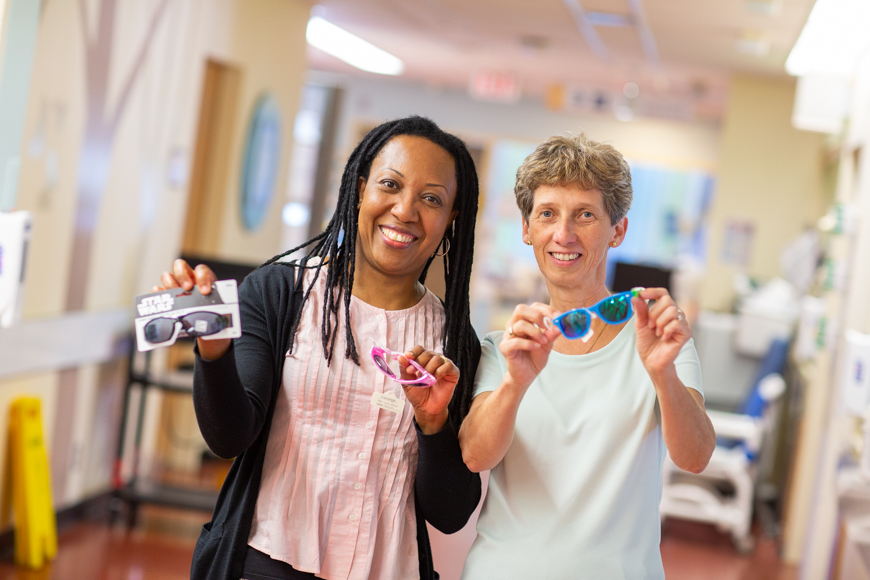
Sunglasses help brain injury patients
If you ever suffered a concussion, you probably know about the headaches that sometimes come with it. Even a light at low wattage can trigger it.
Staff at Hamilton Health Sciences’ (HHS) McMaster Children’s Hospital (MCH) came up with a way, under the Continuous Quality Improvement management system (CQI), to make sure patients diagnosed with a brain injury are more comfortable walking the hallways.
Light sensitivity is a common outcome from these injuries. But MCH’s Charmaine Neu, a physiotherapist, and Margaret Karek, child life specialist, came up with a solution that will help concussed patients.
“As a centre for early mobilization, we know it’s important to remove barriers so each MCH patient can enjoy safe daily movement,” Charmaine says. “We had an opportunity to offer sunglasses for light-sensitive patients and made them available as soon as we could.”
“We try to put patients in the best environment possible so they can recover more quickly,” Margaret adds.
CQI paves the way
Both Charmaine and Margaret have provided care for children under 18 for over 20 years. They have the experience to spot issues on their unit in pediatric inpatient surgery.
The CQI process allowed this issue to be presented to their team in a timely way.
“We try to put patients in the best environment possible so they can recover more quickly.”
On the improvement opportunity slip staff must complete to begin the process, Charmaine wrote the unit does not carry sunglasses to allow mobilization of patients with light sensitivity.
The group determined this was a ‘Just Do It’ solution. Margaret was then tasked with finding a solution for families who did not have sunglasses available.
The issue was kept on the unit’s huddle board until a supply of sunglasses were brought to the unit. A storage area was then communicated to team members.
Patients can choose their size and style of sunglasses
Sunglasses of all sizes and styles are now stored on the surgical unit.
All patients who experience light sensitivity stemming from brain injuries, including concussions, can now go outside dark rooms without fear of hall lights causing headaches or severe discomfort.
“By wearing sunglasses, patients are no longer restricted to mobilizing in their rooms,” Charmaine says. “The best thing about it is patients and their families no longer experience distress with patients leaving their rooms.”
Charmaine and Margaret have seen noticeable impact to patient safety this simple improvement created.
They hope their fellow colleagues continue to raise more opportunities for improvement, no matter how small the solution.
